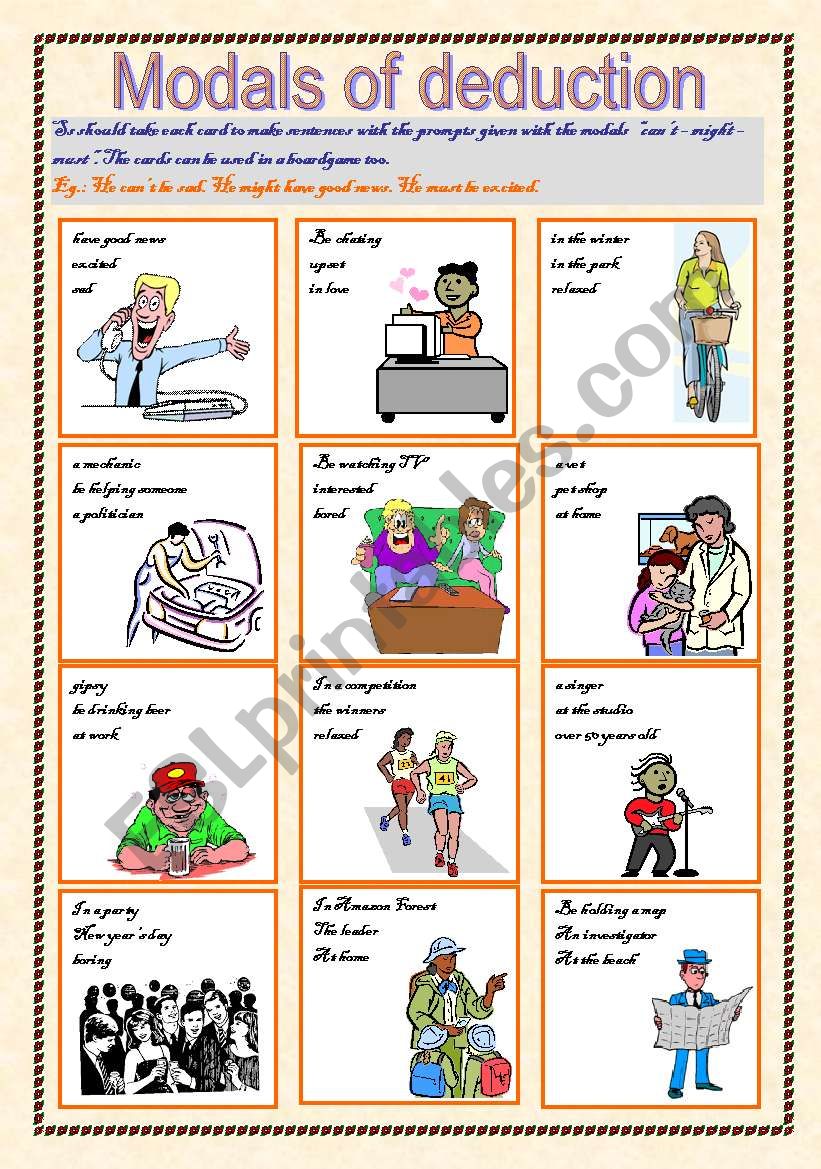

They might be some kind of small pig.ĭaisy: I don’t know. One point to Ollie, but that was an easy one. Tell me what the food is.ĭaisy: Ooh, that looks a bit like pasta, burnt pasta, but it isn’t, is it? Can you both see the phone? I’m going to send you some photos of Indonesian food. I was thinking about you just now, actually, and I’ve got a little quiz prepared for you. Ollie: Don’t make us jealous, Mum! You’re always doing that. I’m going to order a big bowl of spicy noodles. I’ve just been walking round this amazing market and it’s made me hungry. I … Oh, that might be Mum phoning from Bali. He could have been working late (not: 'could be'.Daisy: This is so good.This is not used to talk about specific possibilites in the past (instead we use could + have + past participle): Prices could be high in the sixteenth century.We can use could + infinitive to talk about a general possibility in the past (compare with the use of 'can' above): Should + have + past participle Should + have + past participle can be used to make an assumption about something that has probably happened, if everything is as we expect (compare with present use of 'should' above): The parcel will have arrived before now.Will / won't + have + past participle Will and won't / will not + have + past participle are used for past certainty (compare with present use of 'will' above): She must have forgotten about our date.could / couldn't have + past participle.might / might not have + past participle.( Click here to review how to make the past participle) He could be on the bus (not: 'can be').Ģ: Using modal verbs to talk about the past: must / might / could / may / can't + have + past participle.The underground will be very busy now (not: 'should be').Ĭan Can is used for something that is generally possible, something we know sometimes happens:Ĭan is not used to talk about specific possibilities:.This use of should isn't usually used for negative events. Should / shouldn't Should and shouldn't are used to make an assumption about what is probably true, if everything is as we expect: We use will and won't when we are very sure: Notice that the opposite of 'must' is ' can't in this case. I am waiting for Julie with another friend, David.

1: Talking about the present: must / might / could / may / can't + infinitive We choose the verb depending on how sure we are. We can use these modal verbs (also called modals of deduction, speculation or certainty) when we want to make a guess about something. Report this ad Click here for all the exercises about modal verbs. Click here to download this explanation as a pdf.


 0 kommentar(er)
0 kommentar(er)
